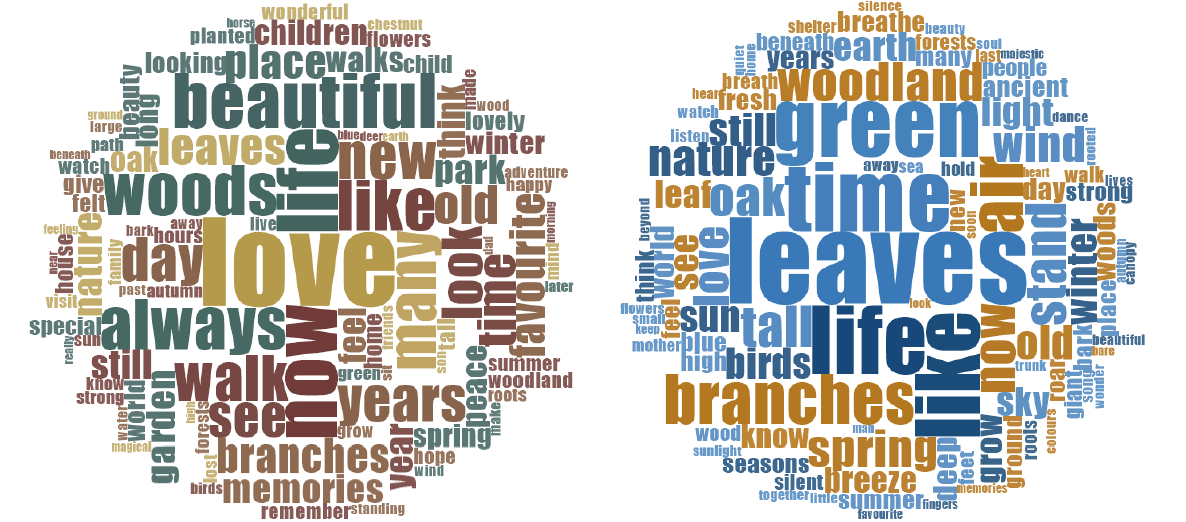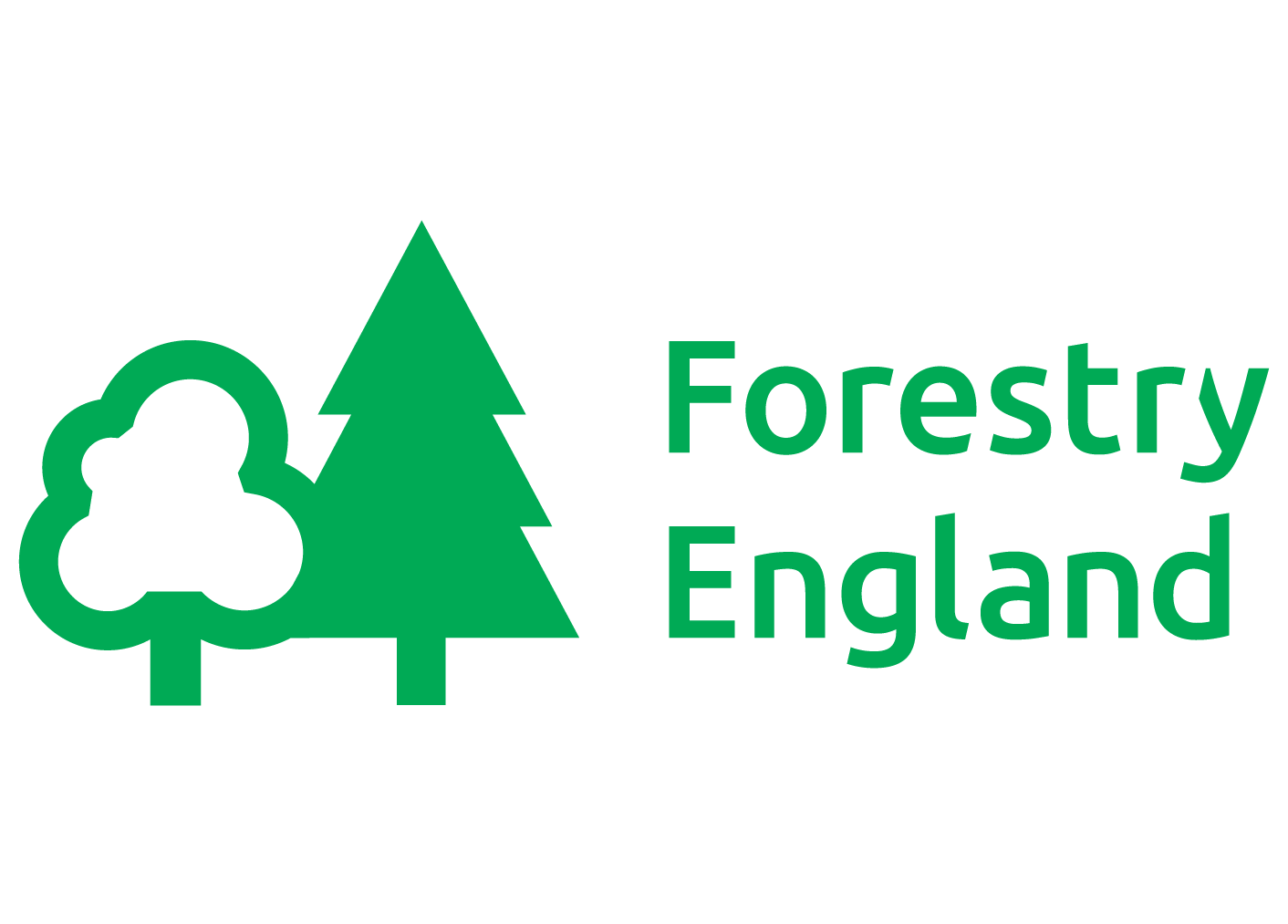Summary
In the Centenary year of the Forestry Commission (2019), members of the public were invited to submit a poem, letter, story, memory or image demonstrating what trees mean to them. The tributes were submitted via a dedicated Tribute to Trees website page. We analysed these tributes based on a cultural ecosystem services framework, focusing on different aspects of place and activities, to understand how those contribute to well-being.
Research Objectives
The objectives of the research were:
- To develop understanding of what trees mean to people
- To understand what aspects of ‘place’ are important to people when they engage with trees, woodlands and forests
- To learn what activities people undertake when they spend time with trees and in woodlands, and if they do these activities with others
- To understand how peoples’ connections to trees, woodlands and forests help their well-being

Word clouds: Prose (left) and poems (right) entries (top 100 words)
Findings and Recommendations
When engaging with trees, woodlands and forests, the aspects of place that are important to people are: broadleaf trees; trees in the wider environment – manmade or natural; different parts of the tree such as the bark and leaves; and being able to see other biodiversity, such as birds, mammals and other plants. The most frequently mentioned activities undertaken in woods and forests include walking, climbing and exploring.
Importantly, when describing what trees mean to them, family members are often mentioned. Another finding was that peoples’ experiences of trees, woods and forests are filtered through time, the seasons and weather.
There is evidence that the way people talk about the value of trees, woodlands and forests in their lives is different in poems than it is in more conventional prose. Thus to fully understand the well-being benefits of trees, woods and forests it is necessary to give people scope to express this through different avenues.
Overall, many of both the prose and poems were full of sentences and phrases expressing emotional experiences and sensory experiences, and these themes were found more often than all the other themes that were explored.

Photos submitted to the Tributes to Trees webpage
Our Involvement
Members of the Social and Economic Research Group developed the framework for analysis of the data, carried out the data analysis, and completed the write-up and reporting. The project is funded by Forestry England.


